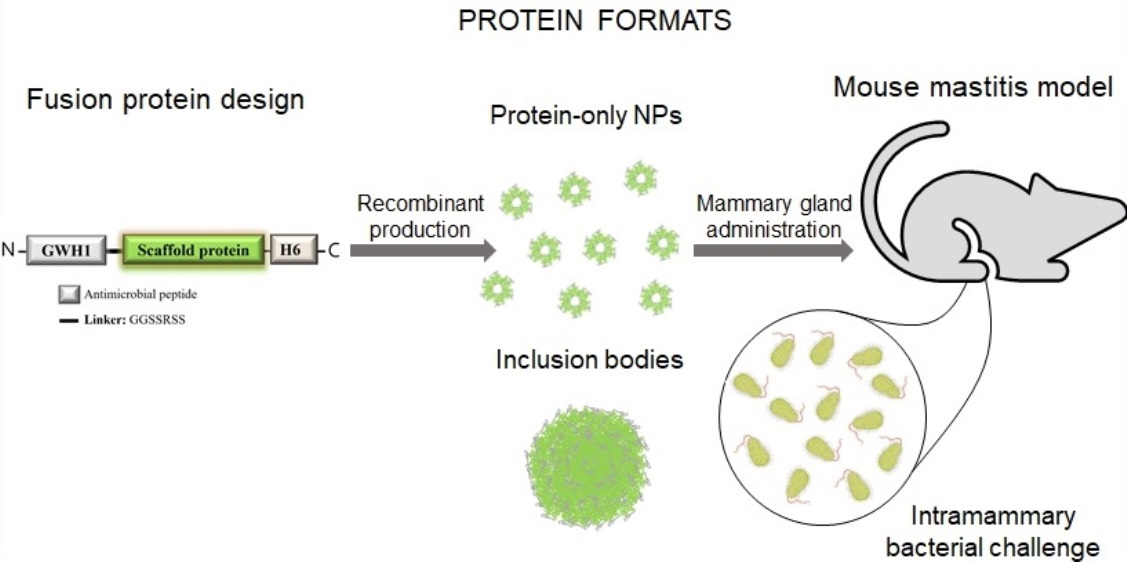 Pharmaceutics 2020, 12(12), 1217; https://doi.org/10.3390/pharmaceutics12121217
Pharmaceutics 2020, 12(12), 1217; https://doi.org/10.3390/pharmaceutics12121217
Abstract
Oligomerization of antimicrobial peptides into nanosized supramolecular complexes produced in biological systems (inclusion bodies and self-assembling nanoparticles) seems an appealing alternative to conventional antibiotics. In this work, the antimicrobial peptide, GWH1, was N-terminally fused to two different scaffold proteins, namely, GFP and IFN-γ for its bacterial production in the form of such recombinant protein complexes. Protein self-assembling as regular soluble protein nanoparticles was achieved in the case of GWH1-GFP, while oligomerization into bacterial inclusion bodies was reached in both constructions. Among all these types of therapeutic proteins, protein nanoparticles of GWH1-GFP showed the highest bactericidal effect in an in vitro assay against Escherichia coli, whereas non-oligomerized GWH1-GFP and GWH1-IFN-γ only displayed a moderate bactericidal activity. These results indicate that the biological activity of GWH1 is specifically enhanced in the form of regular multi-display configurations. Those in vitro observations were fully validated against a bacterial infection using a mouse mastitis model, in which the GWH1-GFP soluble nanoparticles were able to effectively reduce bacterial loads. View Full-Text
